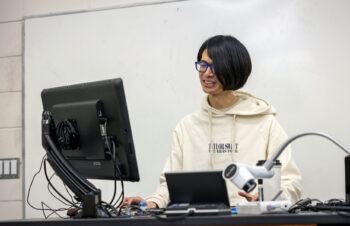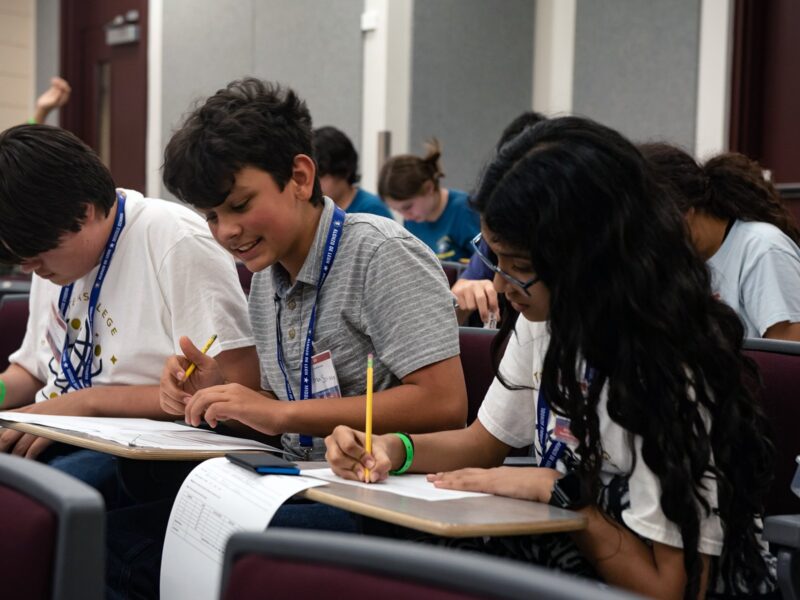Addressing Accessibility In Mathematics

Completing a mathematics degree at Texas A&M University is no easy feat, but Dr. Jeffrey Kuan, an assistant professor in the Department of Mathematics, does what he can to make the journey a little easier, if not also a bit more entertaining.
Kuan’s surprisingly relevant Taylor Swift references and stories about his wife and three children grab students’ attention and keep them engaged. He learns the names of everyone in his classes and ensures that all his students, including those with disabilities, can access the materials they need.
Unfortunately, Kuan readily admits mathematics is not as accessible as it should be. Blind and visually impaired students face unique challenges regarding how mathematics material is presented. Most mathematics professors use PDFs for class notes and an open-source software called LaTeX for homework assignments. However, the PDFs created in LaTeX are not always adapted to accessible formats like Braille. They also are difficult for screen readers to process. And while adding accessibility features manually is possible, Kuan says it’s tedious and time-consuming.
A Catch-22
Circumstances and reasons aside, one thing is crystal clear to Kuan: A lack of accessible material means that students who are blind or visually impaired are underrepresented in mathematics education.
“This creates a Catch-22,” Kuan said, “Many believe mathematics does not need to be accessible because we do not have students who are blind, but in reality, we do not have students who are blind because mathematics is not accessible.”
For the past two years, Kuan has been working to address these issues — first, by using LuaLaTeX, which combines the programming language Lua with LaTeX, to create his PDFs and, second, by creating a series of accessible templates. His first, an accessible syllabus, features automatic tags written into the template’s code, which makes certain elements like lists easy for screen readers to process. Kuan made this syllabus available to his Texas A&M Mathematics colleagues in 2022, and they have been using it department-wide ever since.
Kuan says his work is part of a larger conversation around accessibility in higher education. In May, the U.S Departments of Justice and Education released a joint letter reminding universities that they are responsible for ensuring the accessibility of all digital content. Kuan is one of many professors going beyond those standards to ensure that every student he teaches gets what they need.
His expertise has garnered national attention, leading to an invitation to participate in a panel discussion on accessibility at the Joint Mathematics Meetings 2024, set for Jan. 3-6 in San Francisco. Hosted each year by the American Mathematical Society, the conference represents the largest mathematics gathering in the world and features an unparalleled range of research presentations.
In hopes of realizing his dream of seeing Texas A&M become a leader in accessible mathematics, Kuan is working closely with fellow Texas A&M mathematician Dr. Paulo Lima-Filho in the latter’s role as director of the Math Learning Center. In addition, Kuan recently joined the Texas A&M University System accessibility/universal design in learning (UDL) task force.
“As the largest public university in the United States, I’m confident that we can make this happen for our students.” Kuan said.
Kuan earned his Ph.D. in mathematics in 2015 from Harvard University, where he was a National Science Foundation (NSF) Graduate Research Fellow. He completed a three-year NSF postdoctoral fellowship at Columbia University prior to coming to Texas A&M in 2018. He also received a full-ride undergraduate scholarship as an Axline and Lingle Scholar at the California Institute of Technology.
Media contact: Shana Hutchins, shutchins@tamu.edu





